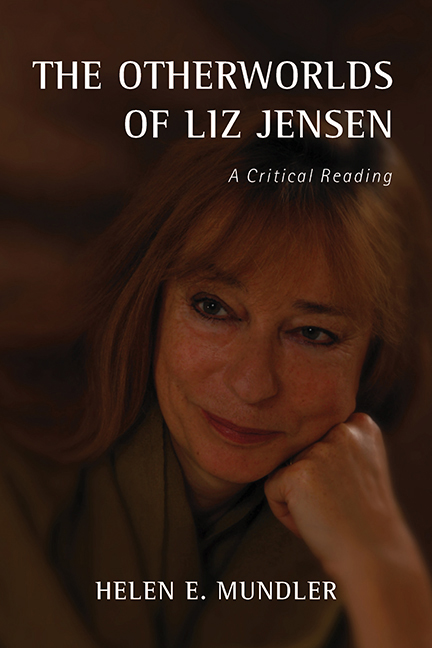Book contents
- Frontmatter
- Dedication
- Contents
- Acknowledgements
- List of Abbreviations
- Introduction
- 1 Egg Dancing: Paving the Way for Otherworlds in Time and Space
- 2 Ark Baby and the Return to the Nineteenth Century
- 3 Island Life: The Pure “Ustopia” of The Paper Eater
- 4 Liz Jensen's Murder Mysteries
- 5 From Family Romance to the Detective Novel
- 6 New Rules, New Otherworlds: Jensen's “Third Wave”
- 7 Ecofiction, Rapture Fiction
- 8 The Uninvited: The Most Radically “Other” World to Date
- Conclusion
- Notes
- Bibliography
- Index
2 - Ark Baby and the Return to the Nineteenth Century
Published online by Cambridge University Press: 09 May 2017
- Frontmatter
- Dedication
- Contents
- Acknowledgements
- List of Abbreviations
- Introduction
- 1 Egg Dancing: Paving the Way for Otherworlds in Time and Space
- 2 Ark Baby and the Return to the Nineteenth Century
- 3 Island Life: The Pure “Ustopia” of The Paper Eater
- 4 Liz Jensen's Murder Mysteries
- 5 From Family Romance to the Detective Novel
- 6 New Rules, New Otherworlds: Jensen's “Third Wave”
- 7 Ecofiction, Rapture Fiction
- 8 The Uninvited: The Most Radically “Other” World to Date
- Conclusion
- Notes
- Bibliography
- Index
Summary
WHILE TIME IN Ark baby stretches far both into the past and some way into the future, the Victorian setting, as one of the two chronotopes of the novel, merits particular attention. Ark Baby belongs to the vast, still-burgeoning and much-studied tradition of the neo-Victorian novel, which reconfigures the Victorian epoch and its narratives in diverse ways. Authors of such novels range from A. S. Byatt to Sarah Waters, through Peter Ackroyd, Emma Tennant, and Graham Swift. According to Christian Gutleben's study of the subject, this return to the past may be based either on “nostalgia,” denoting a desire to return to canonical, pre-structuralist ideals of narrative, or on “subversion,” which takes a greater variety of forms (10). It may be used to relive, or rewrite, the challenge of humankind's rise to modernity and its attempt to grapple with the loss of belief, the discovery of the psyche, and the huge societal changes and upheavals that took place in the mid-nineteenth century (Victoria's reign spanning the years 1837 to 1901), while providing rich opportunities for intertextual reference and for parody and pastiche.
However, more than anything else, the return to the Victorian age tends to mean the return to Freud and Darwin, whose discoveries constituted two of what Margaret Norris terms the “three great shocks inflicted on the human ego by science,” displacing humankind from the center of its world. The emphasis in Ark Baby is on Darwin rather than Freud, but the two inevitably go hand in hand with regard to the decentering of humankind within the universe. While the discovery of the unconscious rationalized the mystery of the drives behind human behavior and debunked the myth of a unified consciousness, in control of itself, replacing it with something fragmentary, and so unsatisfactory to the psyche, evolution made of humankind just another animal, and one subject to trivial and inglorious forces. Norris puts it thus: “Darwin replaced [the] cybernetic model of Nature as a machine with his theory of natural selection, which removed intelligence (and, by inference, a rational Creator) altogether as the source of life and put in its place innumerable, dispersed,trivial organic forces operating unconsciously and irrationally, on an ad hoc basis, subject to chance, over time” (6).
- Type
- Chapter
- Information
- The Otherworlds of Liz JensenA Critical Reading, pp. 40 - 66Publisher: Boydell & BrewerPrint publication year: 2016



